What if I told you that simply by reading this article, you could unlock an innovative mindset?
This isn’t just about absorbing new information—it’s about fundamentally altering your perceptual framework, harnessing the power of your past experiences, and transforming those insights into the building blocks for groundbreaking ideas.
The Power of Connecting the Dots
In a 2005 commencement address at Stanford University, Steve Jobs shared the foundational understanding behind his innovative successes at Apple.
Prompted by numerous questions from CEOs, academics, and aspiring students eager to emulate his success, Jobs suggested a glimpse into the origins of his ability to make connections, which assembled such products, by stating,
“You can’t connect the dots looking forward; you can only connect them looking backward. So you have to trust that the dots will somehow connect in your future.”
Before I discuss the dot, let’s first establish a common understanding of what the word “Innovative” means.
If you examine the word, it refers to the ability to create ideas that are new and very effective at solving problems, impactful, and applicable to real-world situations.
His products such as the iMac, iPod, iPhone, and iPad check all these boxes so perfectly that Apple Inc. still boasts annual revenues of over $300 billion and unshakeable brand loyalty.
At first glance, most people see his quote as metaphorical and words to live by.
However, when you ask people to delve deeper into its meaning, the answers begin to diverge significantly.
Fascinated by his quote, I’ve asked hundreds of people what they actually believe he was referring to with that now incredibly famous quote, and their answers provide many different interpretations including:
- It’s about reflecting on the life you live:
Experiences that seem unrelated can become significant later on.
- Trusting the Process:
Have faith that life’s journey will make sense in the future.
- Thinking Innovatively:
Diverse experiences contribute to breakthroughs and creativity.
- Life’s Unpredictability:
Unpredictable life events often fit together in meaningful ways.
- Personal Growth:
Every experience contributes to personal and professional development.
While I found some value in those interpretations, I also feel as though they only present a high-level explanation of the meaning behind the quote, leaving me with truly no actionable steps I could use to gain any profound understanding of his insights.
A New Perspective on Jobs’s “Dots”
When Jobs spoke about “dots,” I believe he wasn’t just referring to abstract life lessons, random events, or the culmination of a series of things that magically developed into our ideas.
I believe he was talking about specific moments of insight—observations about processes he observed being performed, forms that made up unique understandings of a shape or structure, and styles he found appealing at that moment, which he consciously stored away as a referenceable point of understanding.
I believe the sum total of these perceptions obtained throughout our lives is the crucial source of information that enables our ability to be innovative.
For example, Jobs’s interest in calligraphy during his college years, initially perceived as irrelevant, later became essential for the innovative typography of the Macintosh.
He did not merely rediscover this idea later; he had actively engaged with his fascination for fonts during his college days by asking critical questions about each observation.
This questioning at the moment of experience is crucial, as it transforms mere observations into “dots” that can be connected later.
Years later, this enabled him to link his earlier interest in a seemingly unrelated but fundamentally similar area, applying it innovatively in his devices.
This process of recalling and utilizing past insights, guided by specific questions asked during the original experiences, allowed him to understand how any type of font could be created and implemented across his devices, drawing upon a rich repository of similar observations and understandings from his past.
Your Opportunity to Become More Innovative
Imagine if you could do the same. Instead of waiting for life’s experiences to make sense in hindsight, you could actively observe, store, and later apply these insights.
This approach doesn’t just help you reflect on your journey—it equips you with the tools to create a future rich in possibility where ideas and solutions come often and easily through a conscious and deliberate process.
Start Building Your Collection of “Dots”
By understanding Jobs’s dots as tangible experiences rather than vague concepts, you can start building your own collection of insights through a three-step process including:
1. Active Awareness
where you are continuously surveying your experiences for things that capture your attention- the anomalies that enter into your experiences.
2. Experimental Curiosity
where you consciously extend yourself mentally, giving attention to those areas that capture your attention; and
3. Connected Assemblance
where you make valuable insights and see connections at a broader sense, to things that seem disconnected on its surface. And then you move on to the next observation but always coming back to inquire to know more about what continues to peak your curiosity.
This approach effectively creates reference points that are more memorable and accessible than you might expect, all the while building in depth, your knowledge of what adds value to your interest. This means that when you are faced with new challenges, these insights can be readily retrieved and applied, drawing from your extensive collection of life experiences, which we now understand as dots.
Conclusion
In summary, Jiddu Krishnamurti, a 20th-century English philosopher who delved deeply into the essence of self-awareness and personal transformation, once stated, “Within ourselves lies the world and if you know how to look and learn, then the doors are there and the keys are within your hands.
Nobody on earth can give you either the keys or the doors to open, except yourself.”
I believe the doors he was referring to are our experiences that offer the raw materials for all our ideas and the keys are the questions we ask ourselves when confronted with necessities and challenge.
Book a free consultation call now!
https://thinkdifferentnationscheduling.as.me/Limitation2Innovation
